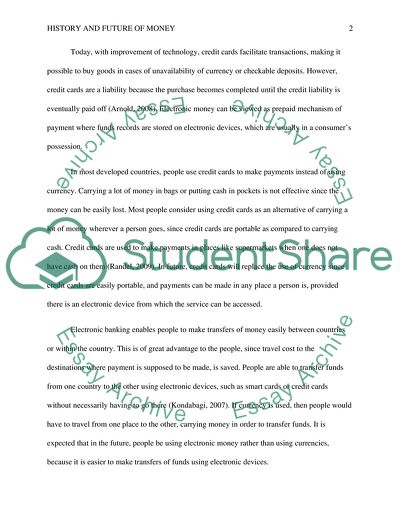History and future of money Research Paper Example | Topics and Well Written Essays - 500 words. https://studentshare.org/finance-accounting/1762672-history-and-future-of-money
History and Future of Money Research Paper Example | Topics and Well Written Essays - 500 Words. https://studentshare.org/finance-accounting/1762672-history-and-future-of-money.


